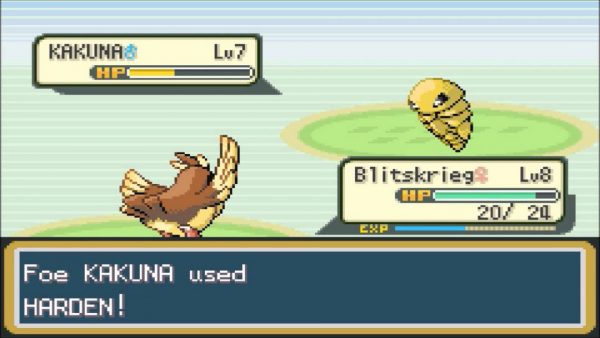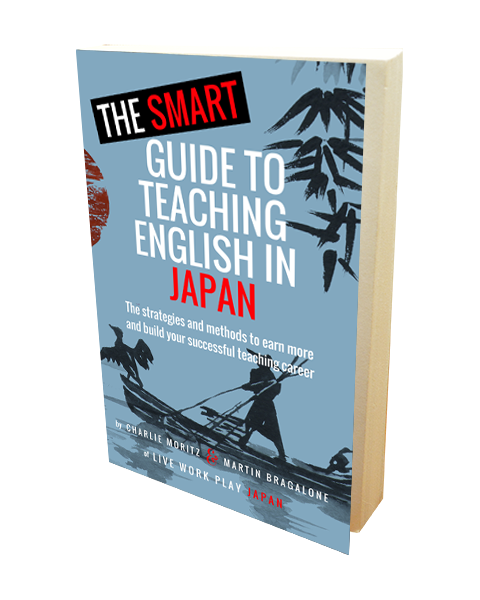It’s easy to say “I wish I had a better job” but to do that are you ready to actually take action?
If, like in the movie Fight Club, Tyler Durden pulled you out of your low-paying job, put a gun to your head and told you that he would kill you if you didn’t improve your life, what would you do? Where would you start?
You can get a good salary no matter what industry you work in, so whether you have decided to get a better paying English teaching job, move into corporate Japan or become a software engineer, there is a path for you. As Seth Godin says: “The best time to start was a year ago, but the second best time to start is right now.”
Step 1: What are you gonna do about it?
Lots of people complain about their job, or complain about the situation English teachers or hard working salarymen in Japan are struggling with. It’s true, a lot of companies offer sub-standard pay and don’t pay insurance. Yes, average salaries for English teachers have stagnated in the past ten years, and yes, there are some racist people here, as anywhere else in the world. That isn’t an excuse not to pursue a better life for yourself.
The question you need to ask yourself, whether all of those things are true or not, is: “What am I gonna do about it?”

You can find other groups of bitter people complaining about their situation to any new co-worker who will listen, and go on Facebook or reddit to find new people to complain to, or you can get up and do something about it. If you want to level up your job in Japan this year, you might want to go for the latter.
I get it, complaining makes you feel better. Do you know else will make you feel better than that? How about an extra ¥40,000 in your pocket every month? How about a ¥200,000 summer travel bonus from your company with two weeks off paid vacation? Sure, not every job will offer this but some of them will, so if you start looking now you might find it. Just spend the hour that you were going to use typing out your frustrations on reddit brushing up your resume or looking for jobs.
Step 2: Make finding a job your job
If your job is teaching at a public school, you usually have evenings and weekends. If you teach Eikaiwa, you have mornings. That is time that you could use to find your next job. Go on the jobs boards like JobsinJapan.com, Ohayo-sensei or GaijinPot and keep looking. Even in March or April you would be surprised how many jobs you can find, and in some cases you can get killer jobs that you aren’t qualified for when a school realises they have to fire their new hire because they sucked, and you’re waiting in the wings to fill that position they desperately need someone for.
You see, you might have a full-time job, but you also have a mission, and that is kind of a job too. Your mission is finding a job, so you should treat it as such. A good friend of mine who was really good at finding work had a policy: when he was looking for work, he would apply to five companies per day. Over a week he applied to more than 30 companies. Before long he had interviews lined up on a daily basis, which also helped him to get really really good at interviewing so he could further increase his success rate.
Keep your ear to the ground all year round so when something good comes up you can be there with your resume in hand. Speaking of which…
Step 3: Adjust your resume for every job you are applying for
If you are using the same resume and cover letter to apply for every job you see, for smart hiring managers at interesting companies and schools, they will see right through this in an instant. Every job ad you see will show you, either directly or indirectly, what a company is looking for in their newest staff member. Take a look here:

Screenshot from a job post with a ¥320k/m salary on JobsinJapan.com
They specifically mention they want someone with experience in corporate training, a business background and strong PC and admin skills, among others. Do you specifically mention those things on your resume? No? Then you know what to do: change your resume to highlight the exact skills that you have that fit the requirements of the job.
We have a whole article on getting an interview, which includes all about writing your resume here.
Step 4: Practice makes perfect
You probably suck at interviewing. Of course you do, you haven’t done enough of it. Even if you have, go one year without taking any interviews and you’ll forget how to do it as well as you did before. To get your dream job, or even just to level up your teaching career and get paid more, you need to first be good enough at interviewing to get them to pick you. How do you do that?
The best way to get good at interviewing is to do a lot of it. Apply for a lot of jobs that you have no intention of accepting. It might seem rude and you might feel bad for doing it, but if you care about your skills and getting the job you really want, this is absolutely necessary. The more practise you get, especially before you take the all important interview for the company you really want to work for, the better.
Step 5: Get a thick skin, you’ll probably get rejected a lot
You don’t deserve a job. None of us do. You earn the job by being a great candidate and by providing value for the company you are applying for. If they find someone else who provides more value than you do, it makes sense that they would pick that person over you. This will happen. There’s no way to avoid rejection in the brutal jobs market other than by not looking for a job and settling for something that pays the bills, but that will ultimately not only make you unhappy and resentful, but will also limit your professional development more and more until you no longer provide enough value in the marketplace to be the great candidate you want to be.

It’s a useless skill in Pokemon, but in your job search it is invaluable!
When I started looking for students for my private classes, a friend of mine told me to “go out and find ten people to reject you quickly. That way you’ll get over the fear of rejection and you can start getting private teaching gigs.” He was absolutely right, and once I have my first ten (and twenty, and thirty) rejections, I stopped worrying about the outcome and focussed in on my method and process. I still get rejected from jobs sometimes, and it still sucks to miss out on an opportunity, but it doesn’t bother me nearly as much as it did in my early twenties.
Get a thick skin, it’s easier and better for you than trying to get the whole world to handle you with care.


